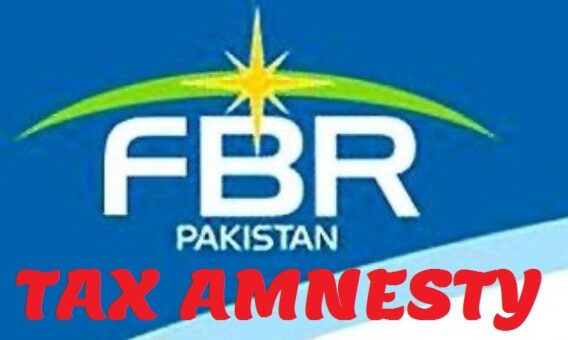ISLAMABAD: The federal government on Thursday launched a tax amnesty scheme for setting up new industrial units. The amnesty scheme has been introduced through a presidential ordinance.
Under the amnesty scheme, the Federal Board of Revenue (FBR) will not ask the source of funds to be utilized for setting up the new industrial undertaking. However, five per cent tax shall be levied for whitening the money.
READ MORE: FBR issues new list of active taxpayers
According to the Income Tax (Amendment) Ordinance, 2022, any eligible person may file a statement by September 30, 2022, declaring the amount of funds (which have not been declared in any of the returns of income up to tax year 2021 filed by December 31, 2021) for investment in a new company formed for establishing and operating an industrial undertaking in accordance with this section.
The funds shall be deposited in rupees in a dedicated bank account in Pakistan as equity of the newly formed company, incorporated under the Companies Act, 2017 (XIX of 2017), before the filing of the statement and such funds shall only be used for purchase or import of plant and machinery through letter of credit or for construction of building and structure for the industrial undertaking.
READ MORE; FBR launches new Active Taxpayers List; return filing grows by 58%
The minimum amount which would qualify for the purposes of this section shall be fifty million rupees.
The provisions of section 111 of the Income Tax Ordinance, 2001 (related to undisclosed income) shall not apply to the funds declared subject to fulfilment of conditions as laid down in this section and payment of an amount equal to five percent thereof along with the statement filed.
The new industrial undertaking in which such investment is made shall commence commercial production by the June 30, 2024 and a certificate to that effect, duly issued by Engineering Development Board, is submitted to the Commissioner along with the return filed for tax year 2024.
READ MORE: POS invoice verification for prize scheme surges by 63%
Any amount of tax paid under this section shall not be refundable or adjustable against any other tax liability of the declarant.
Where a declarant has paid tax under this section in respect of funds declared under sub-section (1), the declarant shall be entitled to incorporate the same in his wealth statement, financial statements or books of accounts, as the case may be.
READ MORE: Sales tax exempted on all petroleum products
For the purposes of this section, eligible person means all persons, except-
(a) holders of public office, their spouses and dependent children;
(b) a public company as defined in clause (47) of section 2 of this Ordinance;
(c) a person who has filed a declaration under the Voluntary Declaration of Domestic Assets Act, 2018, the Foreign Assets (Declaration and Repatriation) Act, 2018, or the Assets Declaration Act, 2019;
(d) a person that has been declared a bank loan defaulter by a bank or a financial institution within the last three years; or
READ MORE: FBR registration made mandatory for housing projects
(e) a director of a company who has been declared a bank loan defaulter by a bank or a financial institution within the last three years.
(7) The provisions of this section shall not apply to —
(a) any proceeds of crime, corruption, money laundering and terror financing;
(b) any amount which is subject of any departmental or court proceedings;
(c) the investments made in following sectors, namely:–
(i) arms and ammunitions;
(ii) explosives;
(iii) sugar;
(iv) cigarettes;
(v) aerated beverages;
(vi) flour mills;
(vii) vegetable ghee; and
(viii) cooking oil manufacturing excluding extraction units.
